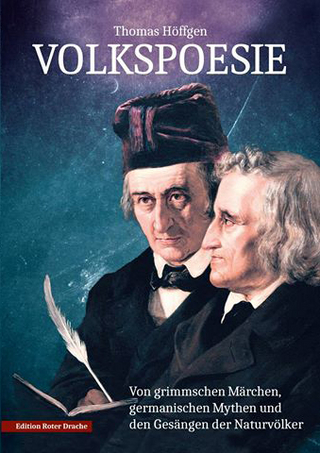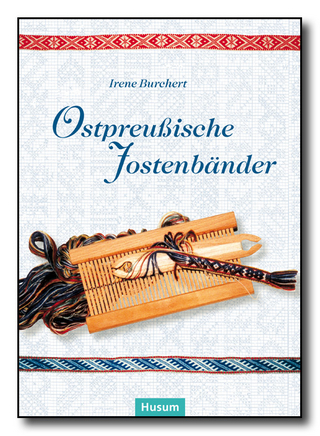
The role of religion in shaping politeness during greeting encounters in Arabic. A matter of conflict or understanding
Anchor Academic Publishing (Verlag)
978-3-96067-055-1 (ISBN)
Abdelaziz Bouchara obtained his PhD from the University of Heidelberg in 2001. At present, he is Professor of Linguistics and Business German at the University of Casablanca (Morocco). Current interests are politeness theory, intercultural communication and globalization. The author has published several articles, in English and German, on intercultural communication and globalization. Bouchara is the author of "Höflichkeitsformen in der Interaktion von Deutschen und Arabern. Ein Beitrag zur interkulturellen Kommunikation" (Politeness forms in interaction between Germans and Arabs. A contribution to intercultural communication) (Niemeyer/DeGruyter, 2002).
Bouchra Qorchi obtained her Phd in Linguistics from La Sorbonne Nouvelle in Paris in 1993. She is Professor of Linguistics at University Hassan II, Casablanca, Morocco. Her main interests are Pragmatics, Psycholinguistics/Neurolinguistics and Translation.
'Text sample:
Chapter 6 Discussion:
Now I come to the most important point, which is the interpretation of the use of religious lexicons. It is worth mentioning that, based on the data that we have analyzed so far, the use of religious expressions when responding to greetings appears to involve the question of fate and destiny in Islam. To inquire about the well-being of Moroccans (Muslims) implies that one is expected to thank God for His favors and blessings by reciting the Qur'an and at the same time we have in mind the fact that we are all at the mercy of God and that no matter how hard we try everything depends on God's will. This may sound self-defeating to non-Muslims to surrender one's will to the existing circumstances and thus to accuse Islam of being fatalistic. As noted above, all Muslims believe that God has knowledge of everything to come, but that humans have freedom of choice and are responsible for the actions they themselves intend to undertake. In this respect, Brown and Levinson put forward three elements that decide the extent of face's threat: The variables of social distance (D), power (P) and the degree of seriousness of the imposition ®. Religion is another factor that might influence the face's threat. The strategy of enacting religion is used to achieve the goal of being polite by means of religious vocabulary and giving religious praises. Due to Islamic Religion and culture's influences, Moroccans think highly of politeness and the harmonious relationships. As a result, religion as a politeness strategy seems to be the key point of their social behaviors.
It is significant to note, however, that religion as a politeness strategy constitutes part and parcel of Moroccans regardless of whether they are believers or not. For instance, the impact of the French linguistic invasion is still obvious in the speech behavior of the ruling elite and the upper class in Morocco. Among them we may find people who are completely assimilated into the French culture and reaching a native-like proficiency in French. They do not fast during Ramadan, although fasting is one of the Five Pillars of Islam. They are Muslims who do not necessarily perform their religious duties, which means they do not practice Islam. Nevertheless, they may, as has already been mentioned (see chapter 2), resort to the strategy of conversational swearing to give credit to their invitations and to achieve the pragmatic end of inviting which is to convince the invitee to accept the invitation. In doing so, one does not demonstrate necessarily his/her commitment to Islam as one's own religion, but is merely trying to be polite by enacting a religious lexicon. In addition, religious expressions are commonly used not only by Arabic speakers, but also by Muslims in whatever language they use in their every day interaction. Indeed, religious expressions are used by speakers of Arabic, "[...] including illiterates, ignorant speakers of rudimentary Islam, and speakers with non-Muslim affiliation" (Masliyah 1999: 13). Overall, then, it seems that religion as a politeness strategy shape, to a great extent, talk and politeness in (Moroccan) Arab culture and that Moroccans could hardly interact with each other without deploying religious expressions in their utterances.
Furthermore, it was also found that religion as a politeness strategy appears to function as a protection of the self-image of both the speaker and the hearer since by doing so the interactants can avoid staking the self-image of each other and as a consequence they preserve the maintenance of face. Therefore, the use of the Qur'an is a communicative resource and ist pragmatic enactment appears to function as a mitigating device for the preservation of social harmony. Moroccans seem to emphasize the role of harmonious personal relationships in building close social connections, so they tend t
| Erscheinungsdatum | 13.07.2016 |
|---|---|
| Sprache | englisch |
| Maße | 155 x 220 mm |
| Gewicht | 153 g |
| Themenwelt | Sozialwissenschaften ► Ethnologie ► Volkskunde |
| Schlagworte | Cross-cultural Pragmatics • greeting • Indirectness vs. Directness • Intercultural communication • Pragmatic Function • Religious expression • Sociolinguistics • Speech Act • Strategy of politeness |
| ISBN-10 | 3-96067-055-9 / 3960670559 |
| ISBN-13 | 978-3-96067-055-1 / 9783960670551 |
| Zustand | Neuware |
| Haben Sie eine Frage zum Produkt? |
aus dem Bereich


